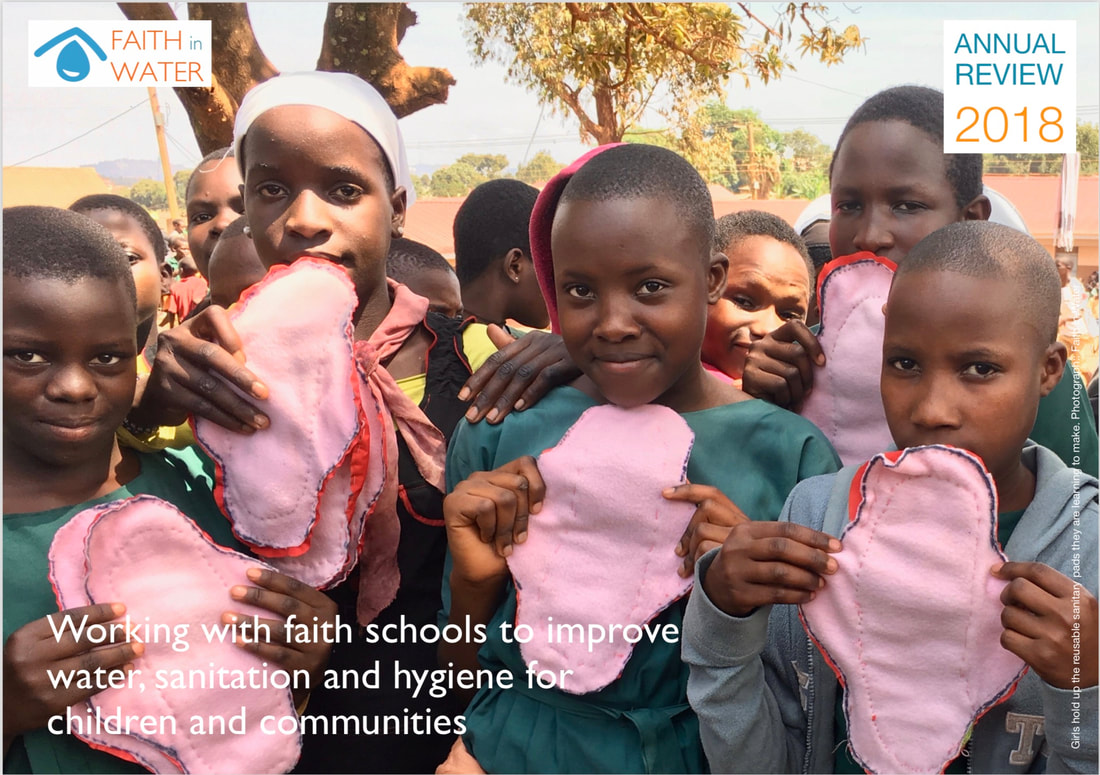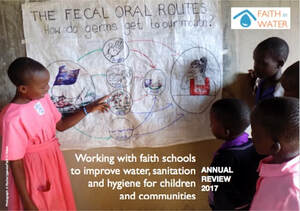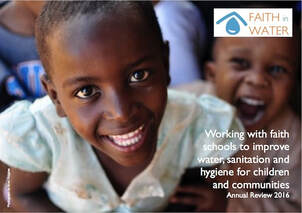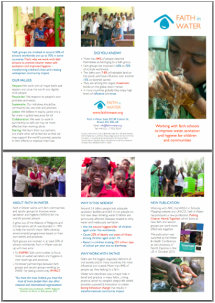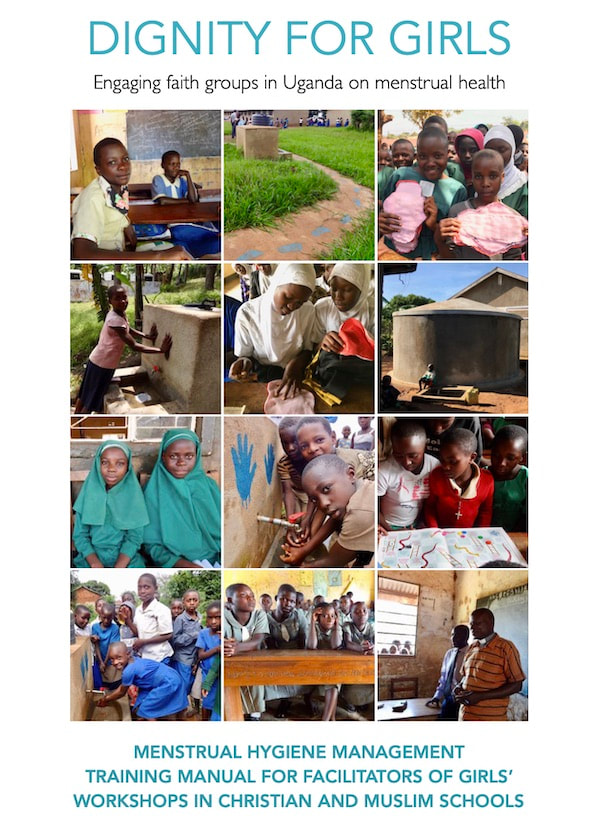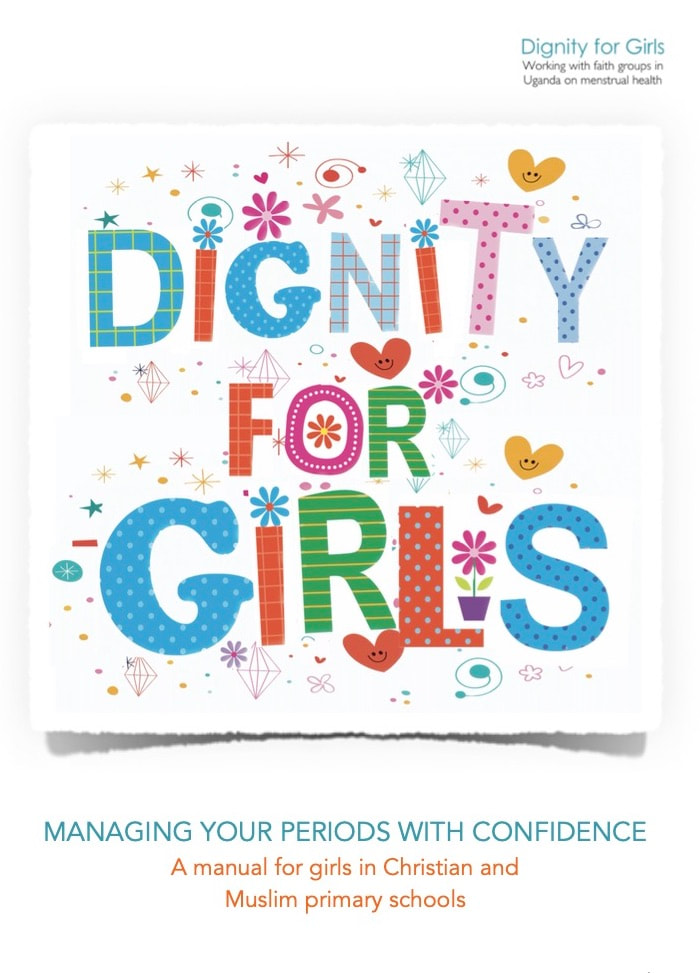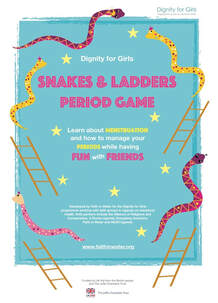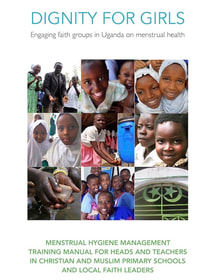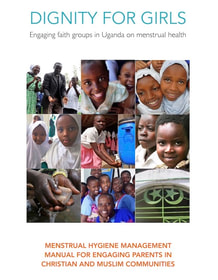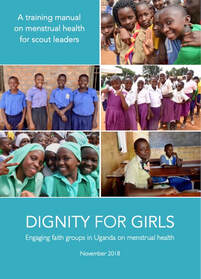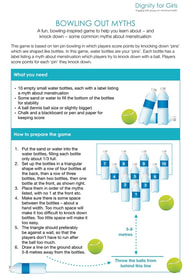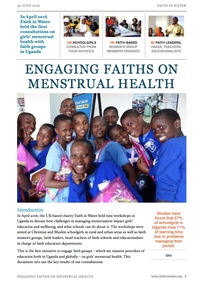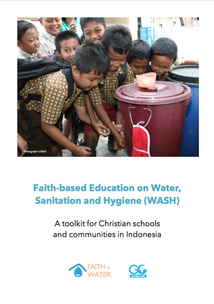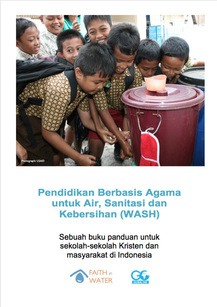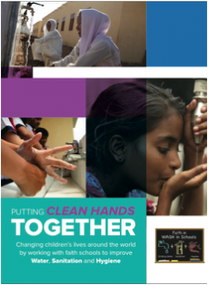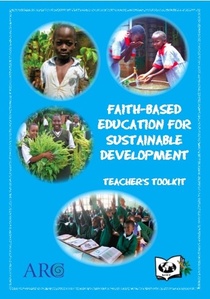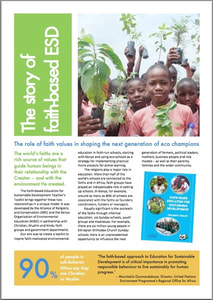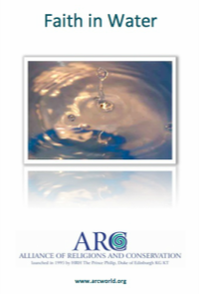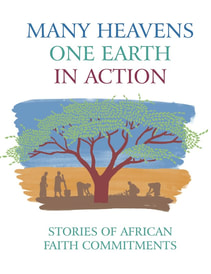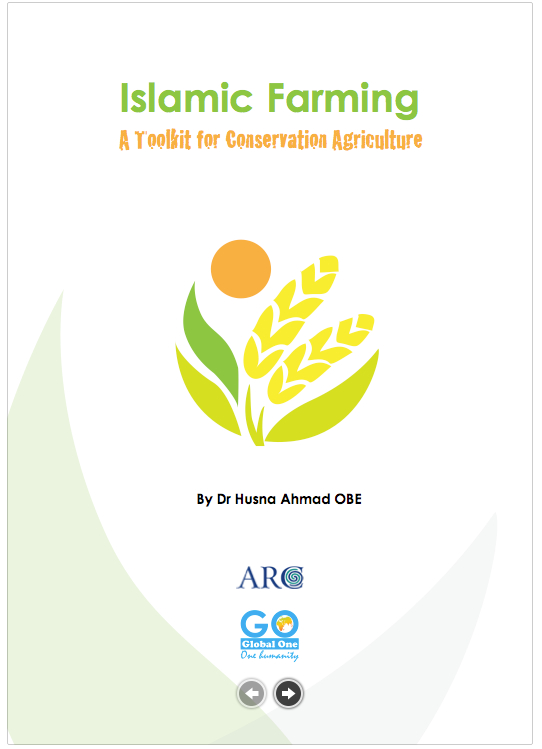Tool, resources and downloads
|
See below for some of the tools, manuals and information resources produced by Faith in Water or the Faith in Water team when we were part of our mother organisation, the Alliance of Religions and Conservation (ARC).
The downloads on this page are all low resolution; contact us directly if you would like higher resolution versions or hard copies. |
Overcoming poverty is not a gesture of charity. |
2018 annual review2018 was an exhilarating year for Faith in Water as our Dignity for Girls menstrual health programme was given a major boost with funding from DFID and the Joffe Trust. We've been busy in Uganda working with the Catholic Church, Church of Uganda and Uganda Muslim Supreme Council. Click here to read our 2018 annual review.
|
2017 annual reviewOur second year was busy and exciting, with the development of partnerships and projects and a major focus on fundraising. We began developing the first menstrual health programme to target faith schools and we delivered faith-based WASH education programmes in Indonesia and Bangladesh. Click here to find out more.
|
2016 annual review2016 was our first year as an independent, registered charity. We launched Putting Clean Hands Together (developed in collaboration with UNICEF), held nine workshops on menstrual health in Uganda and developed a menstrual health toolkit for Christian and Muslim schools, among other things. Phew! Read our annual review here.
|
Other downloads
About Faith in WaterCheck out our two-page Faith in Water leaflet for a quick introduction to the charity and our aims and activities.
Download it here. |
D4G for facilitatorsThis training manual was developed for our Dignity for Girls project, which works to keep more girls in school by helping them manage their periods with confidence. It is aimed at facilitators of girls' MHM workshops. It may be used in conjunction with the D4G A5 Girls Manual (right) but also contains handout pages which may be reprinted and distributed to the girls instead. Download a low-res version here or contact us for a high-res version.
|
D4G for girlsThe Dignity for Girls manual is a fun, lively 18-page A5 booklet aimed at giving school girls the information they need in an accessible way. It was developed for the Dignity for Girls project which aims to enable girls to stay in school by helping them manage their periods with confidence and dignity. It can be used in conjunction with the D4G Facilitators Manual (left). Download a low-res version here or contact us for a high-res version.
|
Snakes & laddersWe developed a Snakes & Ladders' Period game for girls' clubs. The aim is to reinforce lessons learned during lessons with a fun game played with friends. It includes tips about managing periods and also reinforces the message that periods are natural, normal and nothing to be ashamed of. The game is licensed under Creative Commons. Download a low-res version (front and back pages here and inside pages here) or contact us for a high-res version.
|
D4G for teachersThis D4G training manual was developed to train teachers on MHM as part of our Dignity for Girls project, which works to keep more girls in school by helping them manage their periods with confidence. Download a low-res version here or contact us for a high-res version.
|
D4G for parentsThis D4G training manual was developed to raise awareness on MHM among parents as part of our Dignity for Girls project, which works to keep more girls in school by helping them manage their periods with confidence. Download a low-res version here or contact us for a high-res version.
|
D4G for scoutsThis 15-page D4G manual was developed to train scouts on MHM as part of our Dignity for Girls project, which works to keep more girls in school by helping them manage their periods with confidence. The first half is aimed at boys and girls, and the second half has more in-depth advice on how to manage your period, for girls. Download a low-res version here.
|
Bowling out mythsAlso developed for girls' clubs is our Bowling Out Myths game which is loosely based on ten pin bowling in which players score points by knocking down ‘pins’ which are shaped like bottles. In our games, plastic water bottles are our pins, and each one has a myth about periods which players try to knock down with a ball. You score point for each 'pin' knocked down. It's low cost and great fun for girls and boys to play. Download it here.
|
Girls' workshops
When it comes to dealing with their periods, the three biggest concerns for girls in Uganda are: 'can't afford sanitary products'; 'fear that boys will make fun of me'; and 'lack of menstrual health education'. In addition, 62% of them voiced concerns about the state of school toilets. These are some of the results of Faith in Water's consultations with faith groups on menstrual health. Download a low res version of the report here. |
Indonesian toolkitWe developed a WASH toolkit for Christian communities in Indonesia. It outlines the key elements of WASH in schools here but also includes a wider look at the relationship of water, sanitation and hygiene to health and the environment. And it has ideas for engaging your faith community, prayer reflections and sermons. Download a
low-res A4-sized version in English here and the US letter-sized version here. |
Bahasa WASH toolkitHere is the Bahasa version of the WASH toolkit that we developed for Christian communities in Indonesia. It outlines WASH in schools but also includes a wider look at water, sanitation, hygiene,health and the environment. And it has ideas for engaging your faith community, prayer reflections and sermons. Download a low-res A4-sized version in Bahasa by clicking here.
|
Clean Hands...
Putting Clean Hands Together provides a guide to help faith groups and secular organisations work better together on water, sanitation and hygiene issues. Produced by Faith in Water, with UNICEF, the Alliance of Religions and Conservation (ARC) and WASH in Schools Mapping website, it looks at the role of water and cleanliness in five major faiths: Buddhism, Christianity, Islam, Hinduism and Sikhism. Download it here. |
Faith-based ESDThe Faith-based Education for Sustainable Development Teacher's Toolkit integrates faith values about caring for creation with teaching on the environment in faith-run primary schools. This project led to the founding of Faith in Water. It was launched in Kenya, where it was accepted as an approved text by the Ministry of Education, and was showcased at UNESCO's 2014 World Conference. Download a low res version here or contact us for a copy.
|
The Story of FB ESDThe Story of Faith-based ESD is an eight-page brochure outlining how the ESD toolkit was developed and why it was seen as so important by the seven faith groups in Kenya which had helped to shape it.
It is also packed with testimonies and case studies of both the schools and the wider faith communities that have used it, as well as comments from faith leaders. Download it here. |
Faiths and waterIn 2009, our parent charity, ARC, organised a meeting of faith and secular specialists to discuss faiths, schools and water. It resulted in this book, called Faith in Water, which contains a collection of inspiring stories of faith in action from some of the participants. The stories range from work with schools in Kenya to a Hindu project in Vrindavan, India. Download the book from ARC's website here.
|
Many Heavens...
Many Heavens, One Earth in Action: Stories of African Faith Commitments highlights action to protect the living planet by Christian, Muslim and Hindu groups in sub-Saharan Africa. The 144-page book describes how 27 faith groups (together reaching out to 184 million people) developed long-term environmental action plans, including water harvesting, tree planting, sustainable agriculture and engaging young people. Download a copy here (NB: large file). |
Islamic FarmingIslamic Farming: A Toolkit for Conservation Agriculture, is the first manual written for Muslim farmers. Produced in 2014 by ARC, with Muslim-led NGO Global One 2015, it combines training in conservation agriculture – a form of climate-smart agriculture – as well as Muslim teachings on the environment. It has been very well received in Kenya, Uganda and Tanzania. Download it here. And for a Ugandan version, go here.
|
